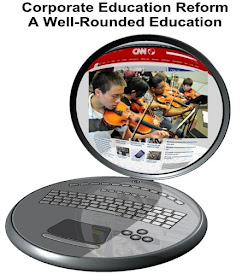Goodbye ‘Core Subjects,’ Hello ‘Well-Rounded Education’

Photo: Norman Lono/National Education Association
Ryan Ruelas, a social studies teacher in Anaheim, California, started his career at an inauspicious time – in 2004, at the outset of the No Child Left Behind era.
“It’s hard entering the teaching profession just as high-takes testing was becoming so dominant,” Ruelas says. “Test scores were everything. I wanted to be a creative history teacher – to cover topics and dig deep into the material, but we had little flexibility. The limitations of NCLB and the emphasis on accountability made that very difficult.”
NCLB’s rigid testing regime forced school across the country to focus their time and energy on preparing for tests in a narrow range of subjects – namely English Language Arts and Math – or at least compel teachers to tailor instruction to the test. Although no policymaker or school leader would publicly say that this was optimal or that ELA and Math were the only subjects worth teaching, NCLB tied classrooms up in knots for more than a decade. Under a threat of sanctions for failing to meet unrealistic proficiency levels, schools felt they had no choice: instruction in other subjects was squeezed out or at least marginalized in many schools, particularly in disadvantaged communities. Social Studies, arts, science, foreign languages, physical education – all the tenets of a well-rounded education took a back seat.
“Every student deserves access to a curriculum that is broad and rich in content—not just reading and math, but the arts, physical education, civics, hands-on career and technical education, and more,“ says National Education Association President Lily Eskelsen García.
Secretary of Education John King agrees. Speaking to the Las Vegas Academy of the Arts in April, King declared that while literacy and math skills were “necessary for success in college and in life…they’re not by themselves sufficient. A more well-rounded education is critical for a safe, supportive and enjoyable learning environment.”
The Every Student Succeeds Act (ESSA), passed by Congress in December to replace NCLB, has the tremendous potential to open the door to this new environment.
“If we’re smart about it, ESSA could really help create classrooms where teachers in the social sciences can focus on the four C’s – collaboration, communication, creativity and critical thinking. We can really make the material relevant for our Goodbye 'Core Subjects,' Hello 'Well-Rounded Education':

